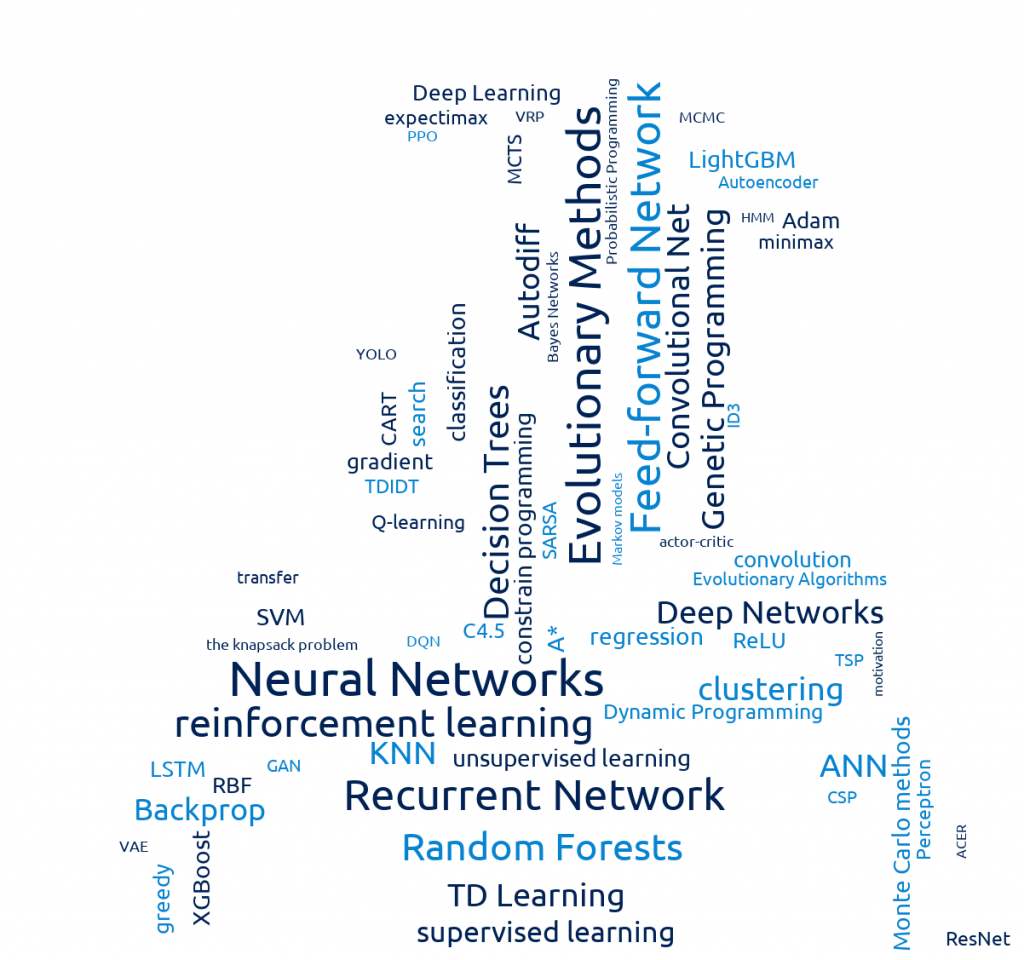“Integrated Teaching for Artificial Intelligence Methods at the University of Žilina”
Project KEGA 008ŽU-4/2021 is supported by the Cultural and Educational Grant Agency MŠVVaŠ SR (KEGA).

The Challenge
In the last few years a significant acceleration of progress in the sphere of artificial intelligence and machine learning has taken place. We have been witness to several ground-breaking discoveries, which have considerably increased the overall interest in the area. Artificial intelligence and machine learning methods can no longer be considered a thing of the distant future – quite on the contrary, many of them are already commonly applied in practice and bring immense added value.
In consequence of this, companies in Slovakia have recently started to integrate such methods into their processes, services and products. However, there has been a long-term shortage of highly qualified professionals in the field of artificial intelligence and machine learning – which presents a challenge to the companies, but also to Slovak universities, who are called upon to train more people – whether in specialized study programmes, through courses offered under existing programmes, or by training existing professionals.
The “Integrated Teaching” Paradigm
The principal goal of KEGA 008ŽU-4/2021 is to address the challenge outlined in the previous section by helping to provide integrated teaching in artificial intelligence and machine learning. The main characteristics of the integrated teaching paradigm are:
- An integrated educational space: We recognize that the area of artificial intelligence and machine learning is highly multidisciplinary. The project aims to create an integrated educational space, where syllabi and the course content are not prepared by individuals, but rather created jointly by teams across different departments of the university – and, in the future, across multiple universities. Furthermore, in the integrated educational space, the commercial sector should become increasingly involved – by providing feedback and inputs, but also through more direct forms of collaboration.
- Modular content: The course content is going to be integral, while also maintaining modularity and flexibility. It is impossible to create a monolithic program for such a multidisciplinary area without it missing essential content. However, a program that maintains modularity and flexibility, can be taken in many different ways – by selecting different specialized and elective courses. This allows students to specialize in different ways and enables the program to cover a much larger area.
- Thorough identification of key areas: The teaching should also be integrated in the sense that it will in future be able to cover all the key areas of artificial intelligence and machine learning. When identifying areas of key interest recommendations from top specialists from UC Berkeley as well as an analysis of certain quantitative indicators will therefore be used.
- “Learning by doing”: Involvement of students in practical projects will be increased, so as to enable them to acquire practical experience and skills, which cannot be gained in any other way. Teaching will therefore integrate theoretical training with strong practical aspects.
- Machine learning summer school and specialized lectures: UNIZA’s machine learning summer school, specialized lectures and other activities will continue to be organized, seeing that they contribute to the creation of an integral educational space.
Planned Activities
These are the main project activities:
- Activity A1: Preparation of the Syllabus;
- Activity A2: Preparation of Course Content;
- Activity A3: Machine Learning Summer School and Specialized Lectures;
- Activity A4: Collaboration with Students;
The Main Project Outputs
| Output Title | Output Description | Year |
| Analysis of areas | Analysis of artificial intelligence and machine learning areas, which is going to be used to determine priorities for the syllabi. | 2021 |
| Syllabi | Syllabi for a study program from the area of artificial intelligence and machine learning. | 2021 |
| Seminar: E-learning and Distance Education | Realization of a seminar on the topic of e-learning and distance education. Discussion concerning the forms of distance learning, identification of the necessary equipment. | 2021 |
| Project Webpage | Creation of a project webpage – with the basic information about the project. The webpage will be used in all phases of the project to publish news, information, outputs, etc. | 2021 |
| Machine Learning Summer School | Organizing and conducting the annual Machine Learning Summer School @UNIZA. | 2021, 2022, 2023 |
| Multilingual Content Support | Recommendations and tools supporting the creation and maintenance of multi-lingual content. | 2022 |
| Theoretical Content | Theoretical educational content concerning selected subjects created within the second and the third year of the project. | 2022, 2023 |
| Practical Content | Practical educational content concerning selected subjects created within the second and the third year of the project. | 2022, 2023 |
| A Monograph | An original scientific publication concerning the analysis of multimodal data | 2023 |